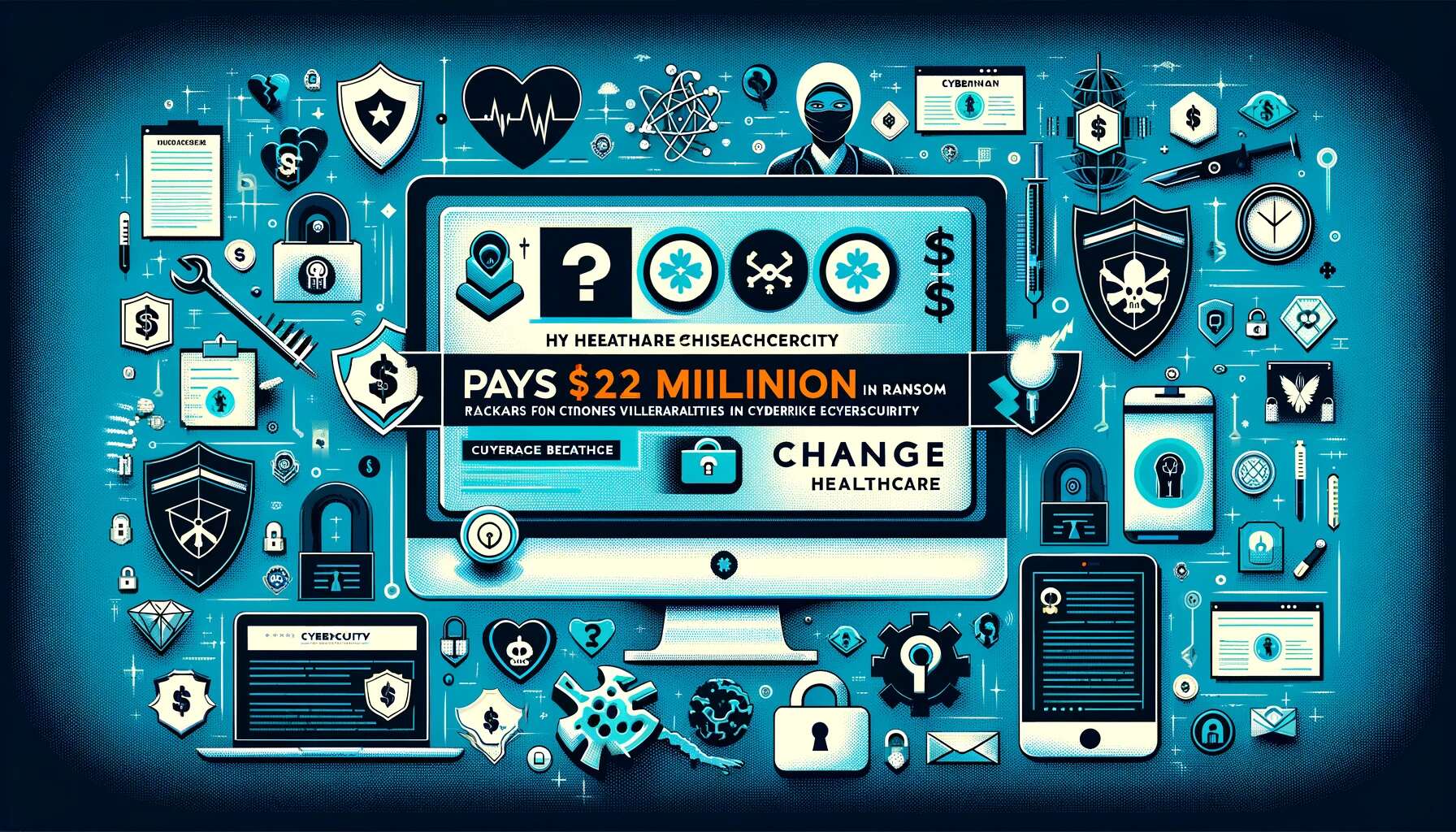07 March 2024 | Thursday | News

Image Source | BioPharma BoardRoom Image Library
Change Healthcare, a key player in the medical services sector owned by UnitedHealth Group, fell victim to a significant ransomware attack in late February, leading to a substantial disruption across the U.S. healthcare landscape. This cyberattack, one of the most disruptive in recent years, notably hampered the operations of pharmacies and affected the delivery of prescription medications nationwide. The situation took a dramatic turn when evidence surfaced suggesting that Change Healthcare might have paid a staggering $22 million in ransom to the attackers, identified as the AlphV or BlackCat group, to resolve the crisis.
The payment's discovery came to light through a transaction recorded on Bitcoin's blockchain, where a sum of 350 bitcoins, equivalent to approximately $22 million, was transferred to a Bitcoin address associated with AlphV. This development was further complicated by internal disputes within the criminal group, as an affiliate accused AlphV of withholding their share of the ransom, thereby inadvertently publicizing the transaction.
Security research entities, including Recorded Future and TRM Labs, have corroborated the link between the Bitcoin address in question and the AlphV group, strengthening the assertion that Change Healthcare capitulated to the ransom demands.
The decision to pay the ransom, if confirmed, sets a troubling precedent for the healthcare industry and beyond. It signals to cybercriminals that the sector is a lucrative target, potentially leading to an escalation in similar attacks. The funding provided to AlphV through the ransom could finance further cybercriminal activities, perpetuating a cycle of extortion and disruption.
Moreover, the incident exposes the complexity and dangers of dealing with ransomware groups. Despite the payment, there's no guarantee that the stolen data will be securely deleted or that further demands won't be made, either by the original attackers or by others who may have accessed the data.
This event underscores the persistent threat of ransomware and the importance of robust cybersecurity defenses, especially in critical sectors like healthcare. It also highlights the challenges in responding to such incidents, where the immediate goal of restoring services can conflict with longer-term security principles and ethical considerations.
The recurrence of significant ransomware attacks, despite previous law enforcement actions against groups like AlphV, illustrates the resilience of these cybercriminal networks and the ongoing arms race between attackers and defenders in the cybersecurity domain.
The Change Healthcare incident serves as a stark reminder of the cybersecurity vulnerabilities that exist within vital sectors and the complex decisions organizations face when targeted by ransomware attacks. Moving forward, it's imperative for the healthcare industry and other critical infrastructure sectors to invest in strengthening their cybersecurity posture, including implementing robust data backup and recovery procedures, conducting regular security assessments, and fostering a culture of cybersecurity awareness among their workforce.
Collaboration with law enforcement and cybersecurity firms for threat intelligence sharing and response planning is also crucial. Ultimately, a multi-faceted approach combining technological, operational, and educational strategies will be key to enhancing resilience against the evolving threat landscape of ransomware and other cyber threats.
© 2026 Biopharma Boardroom. All Rights Reserved.